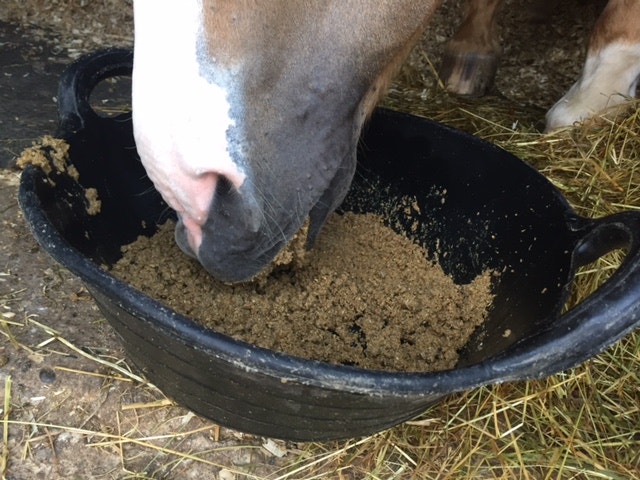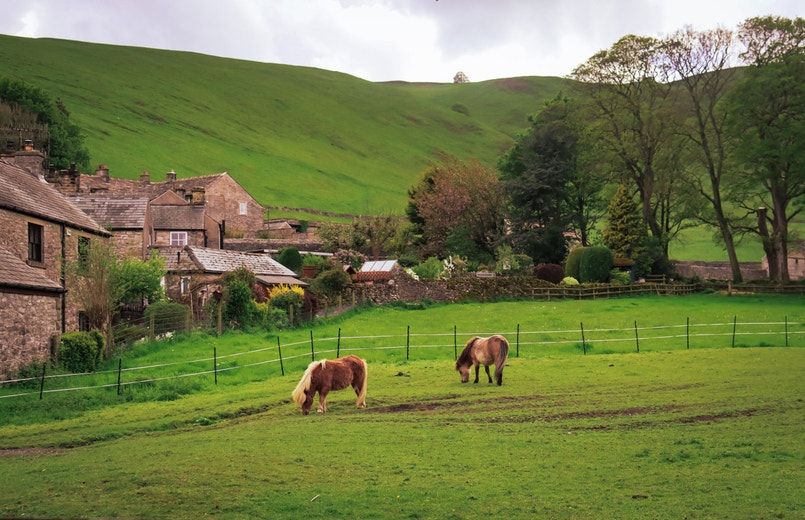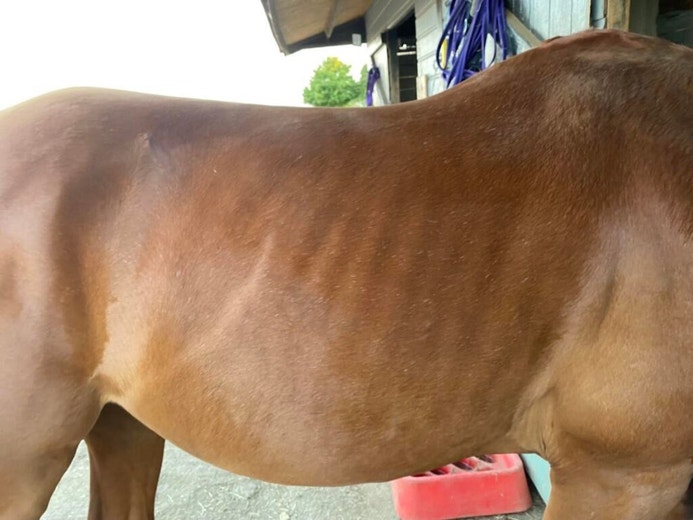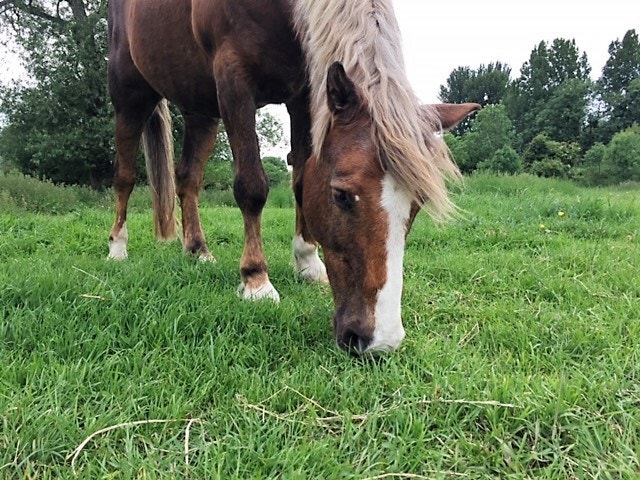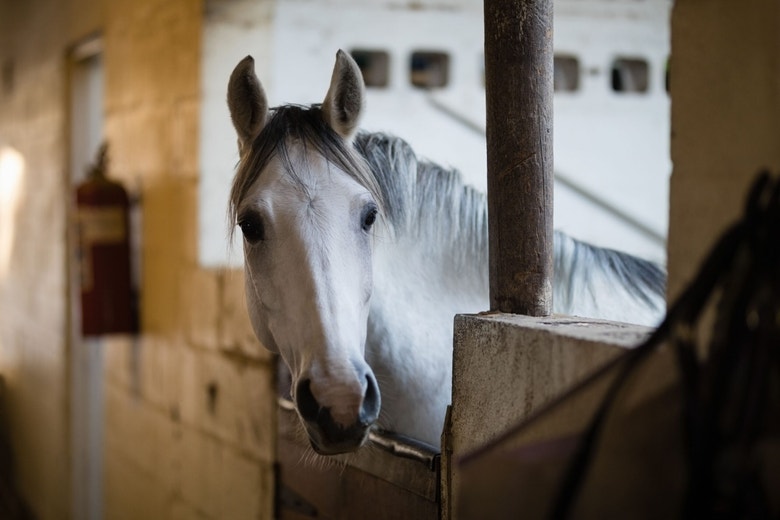
The Ultimate Guide To Feeding A Mash
Mashes have taken the equestrian world by a storm in recent years with available options now far exceeding sugar beet, bran and boiled linseed which were feed-room staples in days gone by. So, what’s the reason for this increase in popularity and how do you know if a mash (or which one) might be suitable for your horse? Read on to discover the when, why and how of feeding a mash…
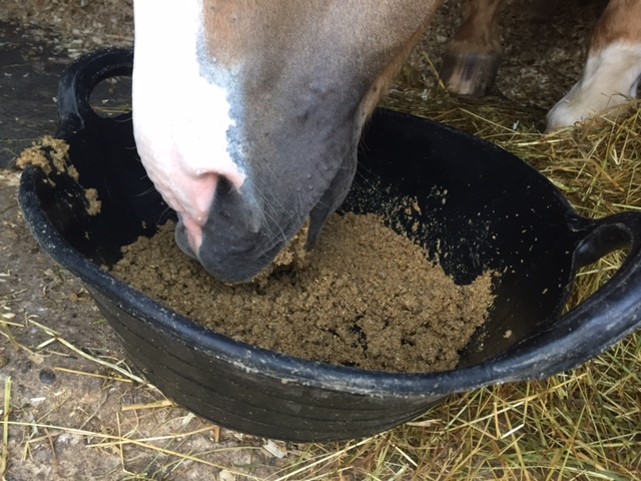
Mashes for horses with poor teeth
The soft, ‘porridge like’ consistency makes mashes ideal for horses with poor teeth. If your horse needs a forage replacer and can no longer manage short chop fibre, a mash will be essential.
Mashes for hydration
Any feed that requires soaking will of course help increase water intake – when soaked as directed, feeding 3kg of a SPILLERS mash will result in the horse consuming approximately 5 litres of water. However, feeding a mash may also encourage some horses to drink more water too!
Mashes for a low starch diet
Many (but not all) mashes are high in fibre and low in starch and sugar, providing an alternative to traditional cereal based feeds that are suitable for those prone to excitability or clinical conditions such as laminitis. Like mixes and cubes, low, medium and high energy (calorie) options are available.
Mashes for tempting fussy eaters
Feeding fussy eaters can be challenging in more ways than one, but adding a small amount of a tasty mash to the horse’s current feed may tempt them to tuck in, especially if it includes added flavours, herbs or aromas. They are also a great way of mixing in supplements and can be used to help disguise medications.
Did you know all SPILLERS mashes contain a delicious apple aroma? While we can’t promise to win over every horse, we’ve had lots of feedback from owners telling us that our mashes have helped to tempt even the fussiest of eaters.
Mashes for ‘bulking out the bucket’
A token ration of mash (500g per day or less for a 500kg horse) will add limited calories to the diet – this coupled with the increase in volume after soaking helps to bulk out the bucket without compromising the good doer’s waistline.
Tips for choosing a mash
- Check whether your chosen mash contains added vitamins and minerals – if you not, you will need to feed it alongside the recommended amount of an appropriate compound feed, balancer or broad-spectrum vitamin and mineral supplement to provide a balanced diet.
- Not all mashes are suitable for feeding as a hay replacer (and some may only be suitable for feeding as a partial hay replacer) – seek advice from the manufacturer or a nutritional advisor if you’re unsure.
- If you are competing, make sure the mash you choose (and any other feeds, supplements and treats) is BETA® NOPS approved.
- Feeds containing molasses are not automatically high in sugar, but many companies now offer molasses free options for those who prefer to avoid molasses completely.
- Quick soaking mashes are a convenient option – some take less than 5 minutes to prepare even if using cold water!
Tips for preparing and feeding
- Always weigh your mash before soaking. The suggested feeding rates on pack are based on the dry weight – the increase in volume post soaking makes it easy to over-estimate how much you are feeding.
- Always refer to the manufacturer’s instructions regarding soaking time and the amount of water needed and then be sure to check the consistency is suitable for your individual horse before feeding – if necessary, increase the amount of water and/ or soaking time.
- Soaked feeds can start to ferment quickly in hot weather so avoid soaking in advance as the weather up – quick soaking varieties are ideal in this situation.
- Using warm (not boiling) water can help to speed-up the soaking time if needed and may encourage eating, especially in older horses with sensitive teeth who may be reluctant to tuck in to feeds mixed with cold water.
- If you choose a mash that requires a longer soaking time, keep it covered and in warm weather, try to leave it in a cool dark place.
Meet the SPILLERS mash range
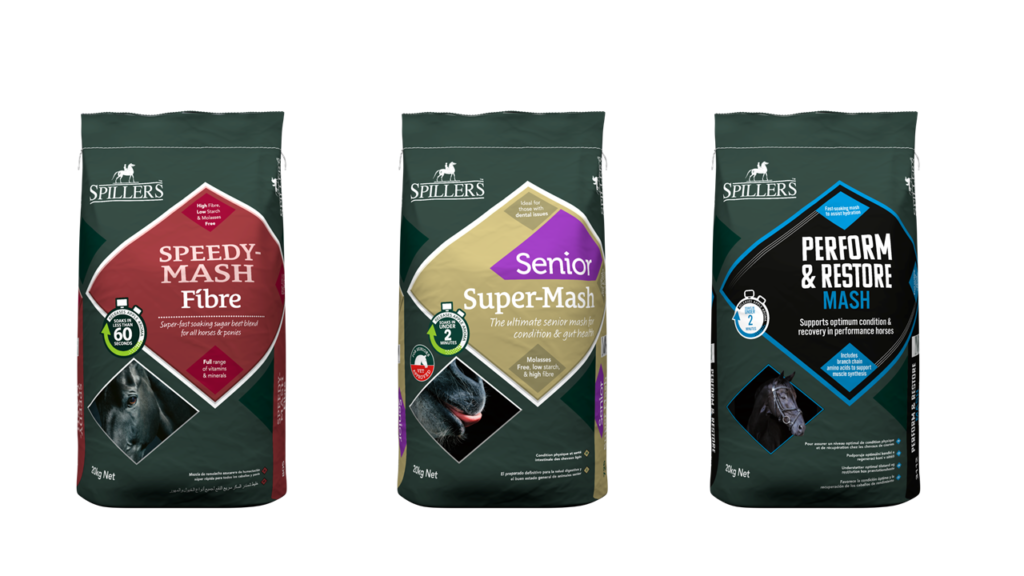
SPILLERS SPEEDY-MASH(open in new tab) Fibre(open in new tab) is a low-calorie, high fibre mash, suitable for all horses and ponies.
SPILLERS Senior Super-Mash(open in new tab) is not just for seniors! It's great for horses that need additional support to gain or maintain their condition.
SPILLERS Peform & Restore Mash(open in new tab) is ideal for supporting optimum condition and post exercise recovery.
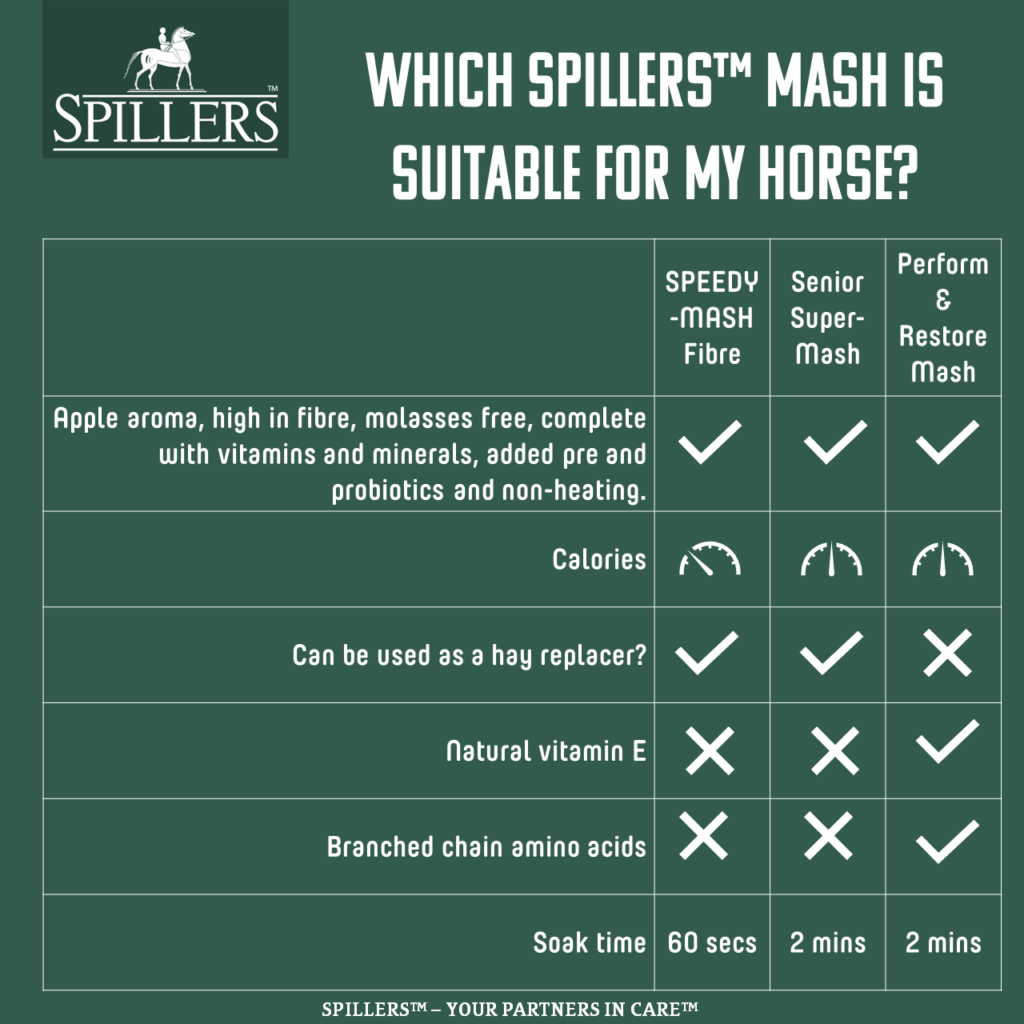
For more advice on feeding a mash to your horse contact the SPILLERS Care-Line, 01908 226626.
